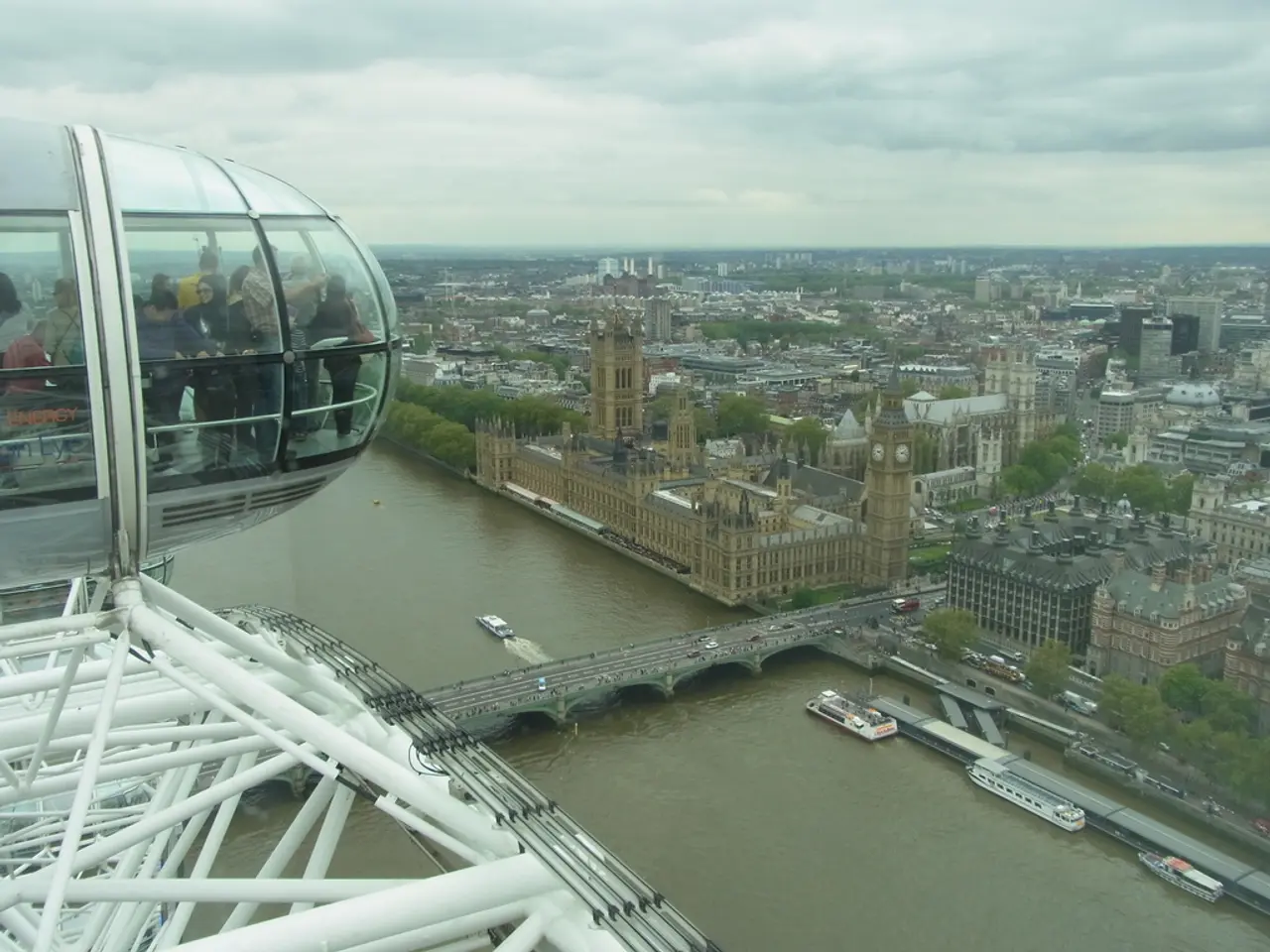Parliamentarians accuse Brexit of being the cause for escalating energy costs in a significant Parliamentary discussion
The United Kingdom's departure from the European Union's (EU) energy trading arrangements has brought about a host of challenges, including inefficiencies, higher prices, and weaker energy resilience. Since leaving the EU, the UK has lost the benefits of being part of a shared European energy market, leading to increased exposure to global gas markets and reduced integration with EU energy systems.
The result? Wholesale energy prices in the UK are expected to remain about 10% above their pre-2020 average through 2031. This contrasts sharply with many EU countries, which benefit from deeper continental energy market integration and stronger infrastructure links, helping to buffer some price shocks.
The disruption in trading relationships and regulatory divergence has made energy costs less predictable and generally higher for the UK. High energy costs have raised concerns about the viability of heavy industry, with companies relocating production to countries like China and the US where power costs are much lower—sometimes only a third of UK/EU levels.
The UK government acknowledges these challenges and aims to strengthen energy security and reduce import dependence by increasing investment in homegrown clean energy. The government also emphasizes the critical role of imports in the net-zero transition while seeking to improve trade relations and import access post-Brexit.
However, the UK now has the highest ratio of electricity to gas prices in Europe, putting it at a disadvantage. Liberal Democrat MP for Bath, Wera Hobhouse, has accused the government of ignoring the impact of Brexit on energy price rises and suggested that the UK government should consider rejoining certain European energy frameworks, such as the 2030 climate and energy framework.
MPs have warned that Brexit is making energy more expensive for UK households, and energy bills remain a major concern. Despite growing pressure from opposition MPs, the Government has not indicated any plans to reconsider its energy relationship with the EU.
As the UK navigates its energy future, the question now is whether ministers will acknowledge Brexit's impact on energy prices and take steps to address the challenges posed by limited access to integrated EU markets and new trade frictions. With energy security and affordability remaining top priorities, it's a question that warrants careful consideration.
References:
- BBC News
- Carbon Brief
- The Guardian
- Government UK
- In an effort to enhance energy security and decrease dependence on imports, the UK government plans to boost investment in homegrown clean energy.
- The disproportionately high ratio of electricity to gas prices in the UK compared to other European countries presents a significant disadvantage.
- MPs are urging the government to reconsider its energy relationship with the EU, citing concerns that Brexit is driving up energy costs for households.
- The Liberal Democrat MP for Bath, Wera Hobhouse, has suggested that rejoining certain European energy frameworks, such as the 2030 climate and energy framework, would help mitigate the impact of Brexit on energy price rises.
- The UK's departure from the EU's energy trading arrangements has resulted in increased exposure to global gas markets, reduced integration with EU energy systems, and higher wholesale energy prices.
- The energy industry and finance sector closely watch policy-and-legislation and general news that pertain to energy costs, energy security, and the net-zero transition in the UK and EU.




